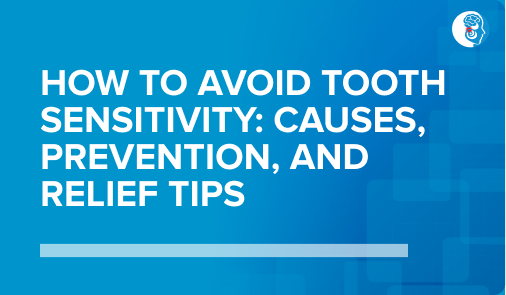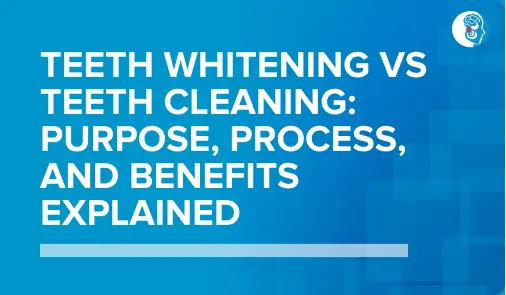
How to Avoid Tooth Sensitivity: Causes, Prevention, and Relief Tips
Tooth sensitivity can turn everyday moments into painful ones. A sip of cold water, a hot drink, or even brushing your teeth may cause sudden
Clenching and grinding are 2 sides of the same coin called Bruxism. In grinding, the teeth move against each other in any direction as a result of which sounds are heard. In clenching, there is no sound heard as the two sets of teeth press against each other forcefully. Both are detrimental to the teeth and then the muscles of the head and neck region as well the TMJ.
Contrary to popular belief, bruxism isn’t caused mainly due to psychological stress. The other causes are physical stress (like lifting weights or any sporting activities) and the more dangerous and painful, airway stress. Airway stress occurs mainly during sleep when the posteriorly placed tongue falls backward into the air-pipe due to gravity and fat. This literally stops the air flow leading to a reduction of oxygen content in the body. This is known as an oxygen desaturation event wherein the the oxygen levels go below 97%. This is dangerous and sustained low levels will lead to dysfunction of multiple systemic activities.
The body recognises the impending danger and the brain reacts by virtually telling the tongue to move forward. The tongue, because of it’s attachment to the lower jaw, when moving forward, drags it along leading to the BRUXISM event. All this happens in half a second. The sleep pattern breaks and the body doesn’t get a chance to go into deep sleep.
But it is this Bruxism event that is literally keeping the person alive; at the expense of the health of the facial muscles and the TMJ. A night bruxer normally wakes up from sleep with sore jaw muscles or even a morning headache. This is because of the continuous muscle hyperactivity as a result of the constant bruxing. Fatigue and a feeling of not being fresh the whole day is a possible fall out from this.
The bruxism exerts pressure on the TMJ entrapping the nerves within the joint leading to more TMJ degeneration. This becomes a vicious cycle.
With proper diagnosis, an apt sleep appliance in the right bite will keep the jaw forward without hurting the muscles. I use myo-kinesiography to ensure this jaw position. With the jaw forward, the airway remains open and doesn’t collapse. Hence, there would be no oxygen desaturations ensuring the patient doesn’t brux and also KEEP ALIVE!

Tooth sensitivity can turn everyday moments into painful ones. A sip of cold water, a hot drink, or even brushing your teeth may cause sudden

A healthy smile depends on more than daily brushing. Professional dental care plays a key role in keeping teeth clean, gums healthy, and smiles confidently.

Tooth pain is not always easy to understand. Some pain goes away on its own. Other pain keeps coming back or getting worse over time.
WhatsApp us